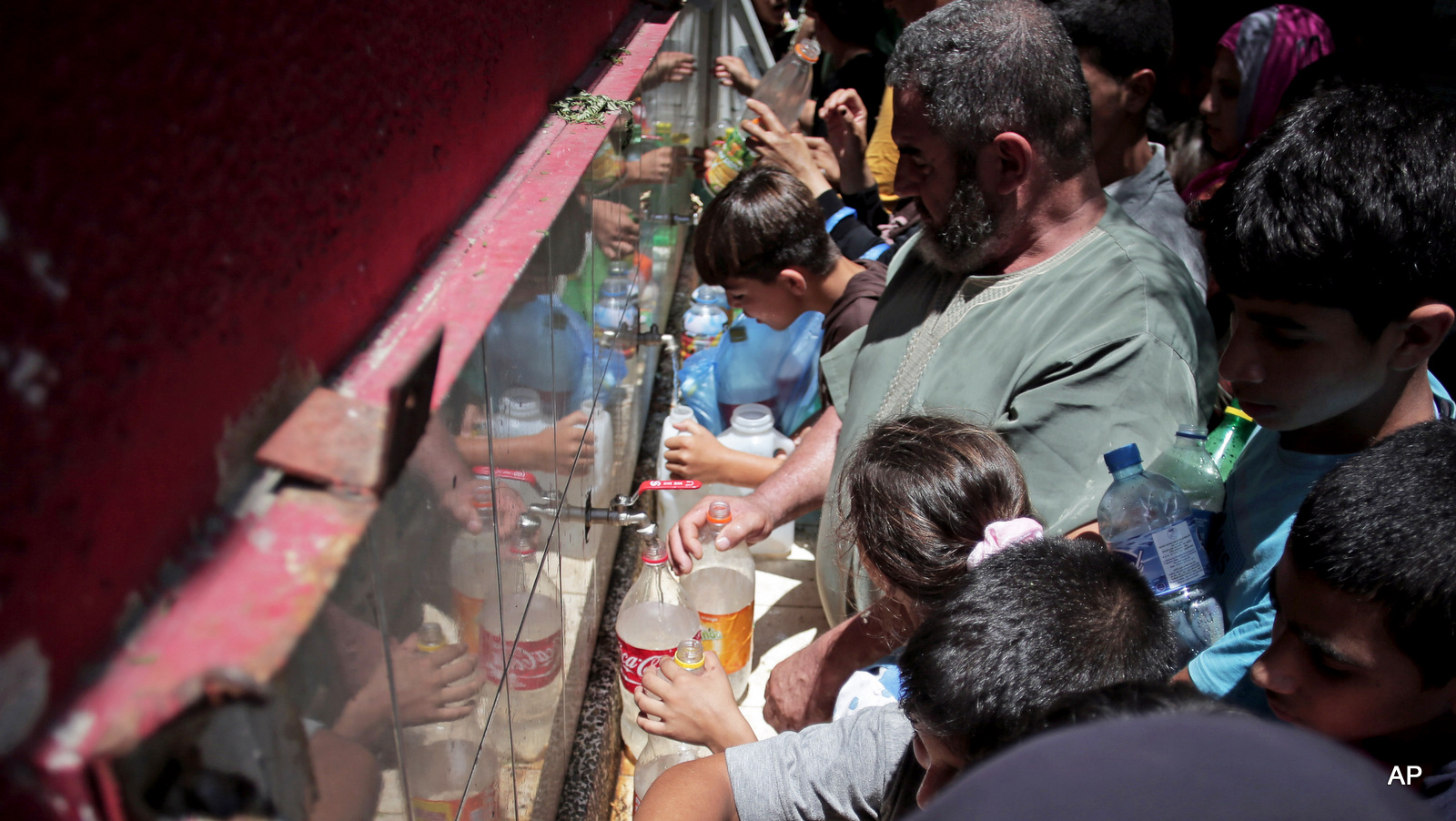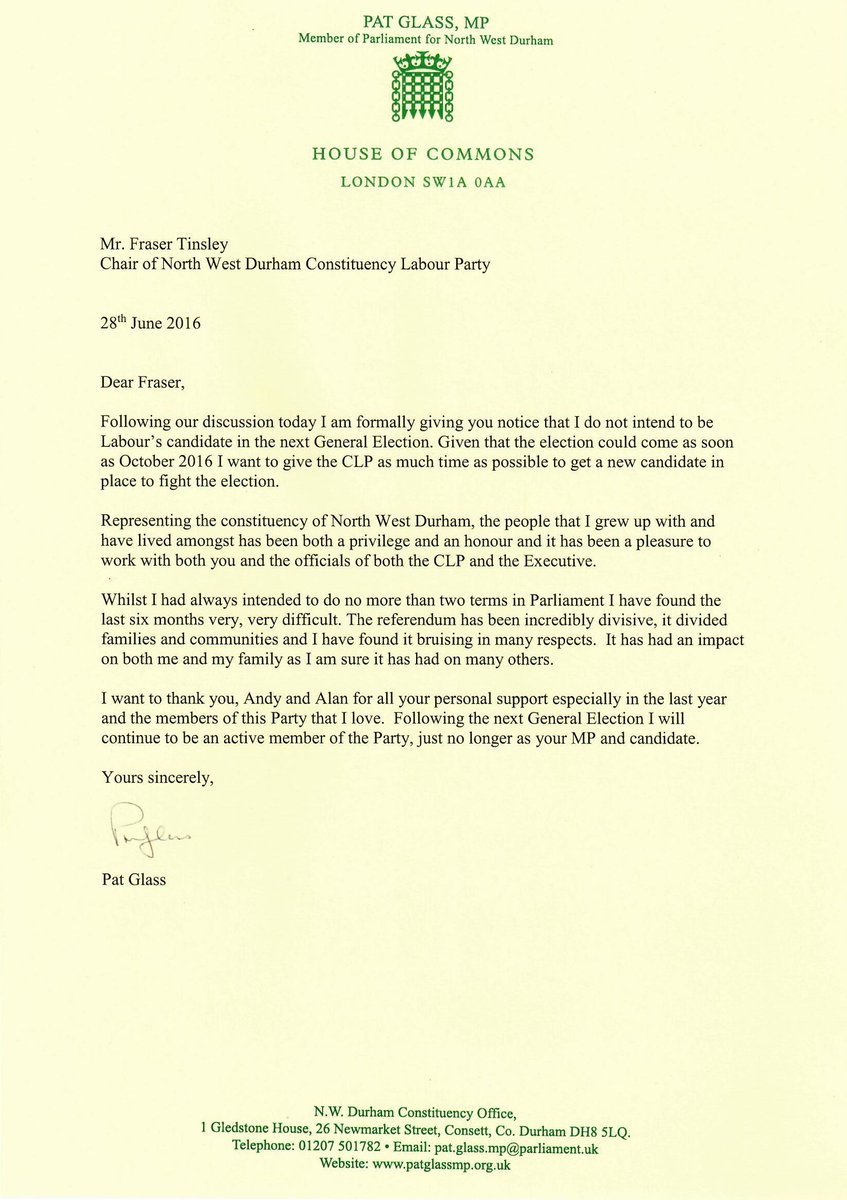Current events and the new world order exposed!!! Jesus (Yeshua) is coming
Thursday, 30 June 2016
Israel Cutting Palestinians Off From Their Own Water Supply is a lie.

Palestinians fill empty bottles of water at the New Gaza Boys United Nations School. Israel controls access to Palestinian aquifers, and has been restricting access to local residents.
JERUSALEM — Apartheid Israel is limiting access to water in Palestine, a long-standing practice that’s only intensified during the holy month of Ramadan, when access to water becomes even more important than usual.
Cuts in water supply are hitting the Occupied West Bank especially hard, Al-Jazeera reported on June 23.
“Water shortages and cuts have … been reported throughout the northern Jenin and Nablus districts of the West Bank, although Israel’s Coordination of Government Activities in the Territories (COGAT) unit, the Israeli body in charge of the occupied West Bank, denied water had been cut or reduced at all,” wrote Sheren Khalel.
Saleh Afaneh, head of water and wastewater for Salfit, a city in the northern part of the West Bank, told Khalel that his community is only receiving 30 to 40 percent of its normal water allowance from Israel.
“On the first day of Ramadan, the water stopped for 24 hours, with no notice,” Afaneh said. “Since then, it has been coming in at less than half the capacity. We’ve done everything we can to try and make residents comfortable, but this is a crisis.”
Most Palestinians are Muslim, and during the holy month of Ramadan, they abstain from eating or drinking water from dawn until dusk.
Having access to water for drinking and food preparation during the pre-dawn and post-sunset hours is particularly crucial during the holy month, which makes the blockade especially devastating, reported Ramzy Baroud, editor of The Palestine Chronicle, in a June 17 interview with RT.
“[P]eople need to have access to food and water more than any other time because of the Iftar, because of breaking the fast and now they are being denied that access,” Baroud said.
According to Baroud, Jenin, a city of about 40,000 people, also located in the northern part of the West Bank, is down to about 50 percent of its normal water supply.
The issue of access to water in Palestine is an ongoing one, Baroud noted.
“Throughout its history of conflict with the Palestinians, Israel has done so much to ensure that Palestinians don’t have access to water — not only as a form of collective punishment, but to also ensure that the Palestinians do not develop their economy because it is reliant on between 14 to 20 percent on agriculture,” he argued.
Controlling Palestinian agriculture allows Israel to profit from both the water supply itself and the few exports it allows to reach foreign markets. Not only have human health and agriculture suffered under the blockade, it’s also stunted the region’s traditional flower growing and many other industries.
According to Khalel, the World Health Organization recommends that every person should have access to about 100 liters of water per day for all their needs, from cooking to washing to drinking. Israelis typically receive about 240 to 300 liters per day, while Palestinians, on average, receive just 73 liters per day.
An additional 180 especially impoverished communities within the “Area C” region of the Gaza Strip are not connected to any running water, and some Palestinians spend as much as one-fifth of their salary on water.
But according to Baroud, that water isn’t Israel’s to sell in the first place.
“The tragedy of all tragedies is that the water that Israelis are holding back from Palestinians is actually Palestinian water,” he told RT. “So, this is really important to keep in mind. Israel steals the water of the Palestinians from the West Bank aquifers, repackages and sells them the water back and now they are actually cutting them off from the very water they stole from the Palestinians in the first place.”
Watch “How difficult is Ramadan in Palestine?” from PressTV UK:
Share this article!
Wednesday, 29 June 2016
Jeremy Corbyn Loses Vote Of No Confidence
Jeremy Corbyn Loses Vote Of No Confidence
More than 80% of Labour MPs vote against their leader as Tom Watson and Angela Eagle meet to discuss who will challenge him.
22:35, UK,
Tuesday 28 June 2016
Jeremy Corbyn has lost a no confidence motion with more than 80% of MPs voting against him.
A total of 172 MPs voted for the motion with 40 MPs voting against with a turnout of 95%.
Sky's Faisal Islam said that there was a rush at the end of the voting period with several of Mr Corbyn's supporters registering their vote in the House of Commons in a bid to send a message that he will run in a leadership election if challenged.
The channel's senior political correspondent Sophy Ridge says she understands former shadow business secretary Angela Eagle is likely to stand against Mr Corbyn but is waiting until tomorrow in case there are any other developments.

The confidence vote is not binding on Mr Corbyn to stand down as Labour leader but will pile further pressure on him after more than 40 members of his shadow cabinet and ministerial team resigned over the weekend and on Monday.
Islam said the MPs who voted against him are gambling that the huge majority Mr Corbyn received during the last leadership election will not be there following the UK's vote to leave the EU.
He said: "For many, he didn't do enough in this European referendum.... His ambivalence, his lack of enthusiasm for the European union helped create among a certain Labour voter a bit of confusion ... and that has motivated a move like this.
"The bigger point is the prospect of a Boris Johnson-led Conservative Party and the possibility of a general election has fired the parliamentary Labour Party into action.
"They have laid down the gauntlet now to the membership and the calculation comes down to this - has the Labour membership changed."
Mr Corbyn responded quickly with a statement that said: "I was democratically elected leader of our party for a new kind of politics by 60% of Labour members and supporters, and I will not betray them by resigning.
"Today's vote by MPs has no constitutional legitimacy.
"We are a democratic party, with a clear constitution. Our people need Labour party members, trade unionists and MPs to unite behind my leadership at a critical time for our country."
Shortly after his statement, three more shadow ministers and two parliamentary private secretaries became the latest on his team to resign.
Former Home and Foreign Secretary Jack Straw described the current crisis as the worst to affect the party since at least 1935, if not ever.
He said: "Mr Corbyn's position is wholly untenable. The Labour Party exists to implement its values through a parliamentary majority and to its members of Parliament.
"Whatever electoral system you have, if Members of Parliament of your own party lose confidence in you, to this degree and this publicly that you cannot continue as a leader."
It came as hundreds of people descended on Abingdon Street Gardens, next to the Houses of Parliament, and others rallied in Trafalgar Square, despite a ban on a rally taking place, backing EU membership.
Labour MPs began voting in the non-binding secret ballot at 10am on Tuesday.
Earlier, video showed an awkward first meeting for Mr Corbyn's new cabinet.
In the footage, Mr Corbyn is unhappy with the presence of cameras and asks them to be removed until later in the meeting.
I have informed my CLP Chair that whenever the next General Election takes place, I will not be Labour's candidate.
So far, 19 members of the shadow cabinet have resigned, 28 shadow ministers have quit and eight parliamentary private secretaries have left their positions, all after shadow foreign secretary Hilary Benn was sacked overnight on Saturday.
Also resigning was former Bank of England MPC member Danny Blanchflower who quit Labour's BoE review, along with several other review members.
Christians, we must love our Muslim neighbors, too
OPINION

Christians, we must love our Muslim neighbors, too
mail
Dr. Amir Arain is a trusted friend. We’ve worked together on several projects in the time I’ve lived in Nashville. Amir is a top Neurologist at Vanderbilt Medical Center and leading professor at Vanderbilt University.
He also happens to be the chief spokesperson on matters of faith and culture for the Nashville Islamic Center. Amir is from Pakistan but is now a U.S. citizen with all the rights and privileges I enjoy. He is as devout to his country, faith, city, and family as I am to mine.
In Dearborn, Michigan—just 20 minutes from where I grew up—some of the most loyal citizens of the U.S. make up the single largest concentration of Arabs in the world, outside of the Middle East. These leaders are doctors, teachers, military servants, and spiritual directors. They are part of the fabric of our nation, the most diverse nation in the history of the world.
I start by describing Amir and Dearborn because I immediately thought of these friends and places as the images, religion, and identities of the two brothers accused of bombing the Boston Marathon emerged in the news media last week.
[pullquote]
We are still barely able to make sense of the horrific and despicable actions allegedly carried out by Dzhokhar Tsarnaev and Tamerlan Tsarnaev. If they are indeed guilty of these crimes (as it appears) their actions represent the worst of human capacity.
The (Wahhabi) segments of Islam that are committed to terrorism, violence, and radical jihad are a major problem and need to be dealt with at every level of life: government, society, religion, development, and education. However, it is not fair to assume that a billion people are violent because of a small minority.
Today, Muslims and Christians make up nearly half the world’s total population. Eighty percent of Muslims around the world do not live in the Middle East and do not speak Arabic.
Islam is as diverse a religion as we have on Planet Earth.
But here, in the U.S., Muslims make up a tiny minority (conservative estimates range from 4-6 million—there are more Detroit Tigers fans than Muslims).
As a pastor, I find it problematic that so many professing followers of Jesus continue to buy into the myth that most Muslims are hateful, violent, and vengeful people. Are we really willing to suggest that 1.2 billion people are evil?
Consider this for a moment: In ancient Israel, during the time of Jesus, Samaritans were a substantial rival religious group to Jews inhabiting a region between Galilee and Judea. Samaritans were like Jews, but not like Jews.
In Jesus’ parable of the “good” Samaritan (Luke 10), he tells the story of two orthodox Jewish leaders who see a fellow Jew beat up on the side of a dangerous road. Both religious leaders look but they don’t see; they choose not to help. Until a Samaritan walks by, the Jew in the ditch has no hope.
The Samaritan comes upon the left-for-dead Jew and has compassion. The Samaritan looks and he sees.
The parable is striking because Jesus essentially challenges his Jewish audience to put themselves in the ditch and imagine who they would least likely expect or desire to rescue them from a precarious situation.
Jesus wanted his audience to see the Samaritan as capable of showing much more mercy than the average Jew would allow.
Jesus wanted his audience to see the Samaritan as a person capable of providing intense mercy.
In addition, Jesus made a Samaritan a hero and he taught and healed in Samaritan regions of Israel.
He also taught, honored, interacted, and healed Samaritan individuals. When Jesus’ disciples wanted to literally kill a group of Samaritans, Jesus rebuked them.
Many leaders today call for Christians to be afraid of Muslims, not to trust “them” because “those people” only want to kill, harm, and destroy Christianity and Western Civilization.
Others, of a different ideological viewpoint, insist that all religions—including Christianity and Islam—are the same; that we are all “traveling up the same mountain, taking different paths.”
Just because I don’t call Amir Arain my brother in the faith, doesn’t mean he isn’t my neighbor.
According to Jesus, everyone is a neighbor, and there’s no one who’s not my neighbor.
Yes, I disagree with Amir on the precise meaning of Jesus’ life and because of this—not in spite of— I believe that the real test of my disagreement with Amir is in the depth of my commitment to loving Amir as Jesus has loved both us.
Because the real test of the Christian faith, in the foreseeable future, is in the church’s willingness to love those who do not subscribe to the Jesus Way.
Subscribe to:
Comments (Atom)










